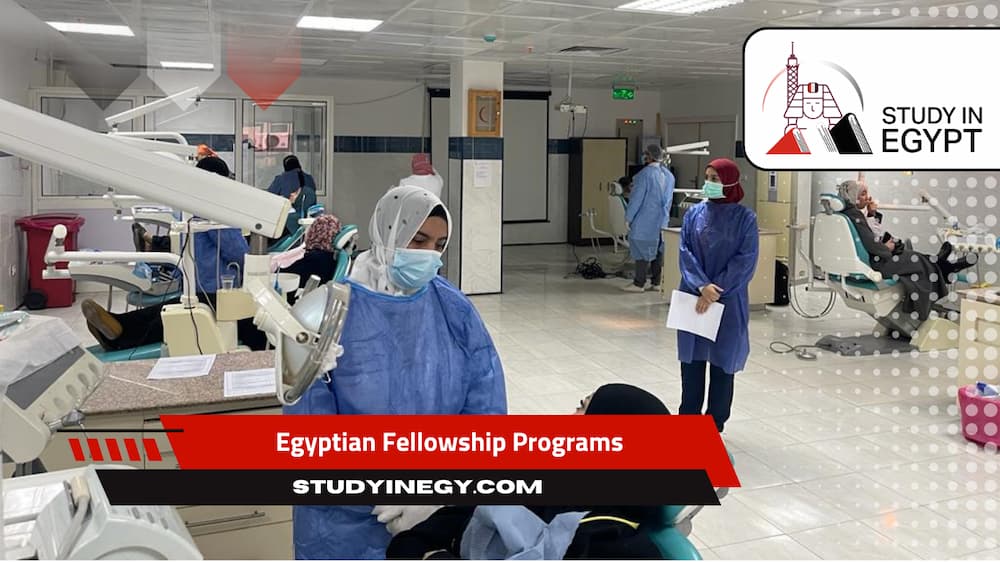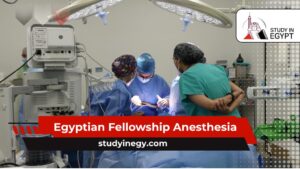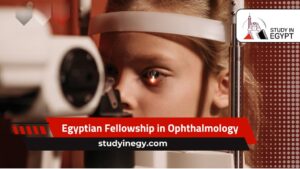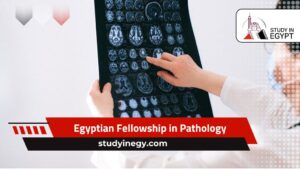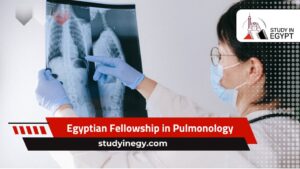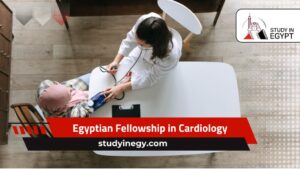The Egyptian Fellowship has become a strong competitor to the British Fellowship and the American and Arab Boards among international students. Therefore, we gain incredible questions about the Egyptian Fellowship system and the Egyptian Fellowship Programs.
How is The Educational Process in the Egyptian Fellowship?!
The Egyptian Fellowship is based on a professional clinical and scientific training system in a medical or health-related specialty.
This training system comprises the largest portion of the study and takes place within highly equipped Egyptian government hospitals.
These hospitals include consultant physicians and scientists in all medical specialties, possessing the most extensive experience, who spare no effort in imparting information to their students.
These government hospitals, where the applied curricula of the Egyptian Fellowship are taught, receive countless numbers of patients daily with various conditions. The demand for a training hospital is almost the highest, as these Egyptian government hospitals are the primary refuge for most patients in Egypt.
Therefore, the student deals with a huge number of cases related to his field of study under the supervision of a group of medical scholars in various medical specialties.
The training in this program is the most exposed to patients compared to other international programs.
This study is based on observation, assistance, participation, and supervised performance.
The student gains extensive professional experience, enabling him to become familiar with the intricacies of professional life in his medical specialty, enabling him to enter regional and international labor markets and demonstrate great success therein.
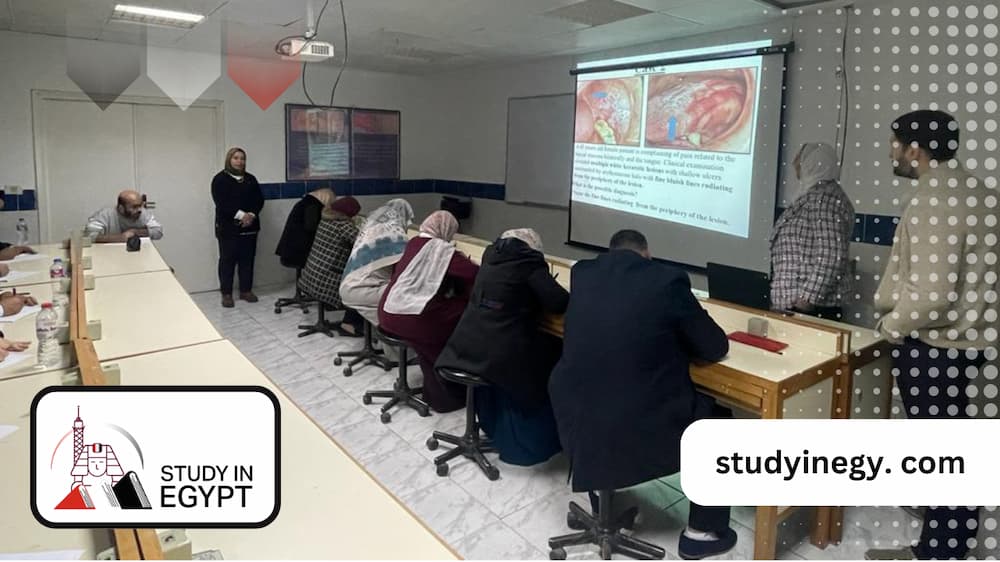
The Academic Part
The student is also given scientific courses in a comprehensive and detailed scientific study that also includes seminars and conferences, in which the student obtains every detail related to his field of study from an academic perspective, thus becoming familiar with the most minute details of his specialization, both scientifically and practically.
This practical training must be systematic, providing detailed scientific content for each specialty.
The trainee is required to devote full-time to training at a hospital or training center accredited by the Egyptian Fellowship, under the title of Fellowship Trainee.
During this practical study, the trainee is treated as a full-time resident physician, with the same rights and duties as a resident physician.
Some health-related specialties do not require full-time dedication, and training is conducted according to the scientific curriculum of the specialty.
The International Value of the University Certificates Offered by the Egyptian Fellowship
The entire world recognizes the exceptional educational level applied by the Egyptian Fellowship and is well aware of the unique practical training offered by this program.
This is why it is highly valued and respected, just as it is with the British Fellowship and the American Board.
Hence, we find that these Egyptian fellowship programs have become completely equivalent to the British Fellowship and the American Board in the value of the university degrees they grant.
These degrees strongly support the CV of the student who holds them in regional and international labor markets.
Despite all of that, the tuition fees of the Egyptian Fellowship Programs are low compared to the fees of the Fellowship programs in the UK and USA.
The Egyptian Fellowship Tuition Fees for the Non-Egyptians
The international students pay only $8000 annually.
Egyptian Fellowship Programs
- Healthcare Facility Management.
- Cardiac Perfusion.
- Interventional Radiology.
- Diagnostic Radiology.
- Neonatal Medicine.
- Dermatology.
- Pulmonary Medicine.
- Neurology.
- Clinical Infectious Diseases.
- Ear, Nose, and Throat.
- Clinical Pathology.
- General Internal Medicine.
- Anesthesia and Surgical Intensive Care. Women’s Medical Imaging.
- Therapeutic Nutrition.
- Obstetrics and Gynecology.
- Reconstructive and Burn Surgery.
- General Surgery. Professional Diploma for Paramedics.
- Professional Diploma for Diagnostic Radiology Technicians.
- Intensive Care.
- Pediatric Intensive Care.
- Rheumatology, Rehabilitation, and Physical Medicine.
- Periodontics.
- Clinical Pharmacy.
- Forensic Medicine and Toxicology.
- Psychiatry.
- Child and Adolescent Psychiatry.
- Radiation Therapy.
- Physiotherapy.
- Cardiovascular Medicine.
- Health Informatics.
- Cardiac Electrophysiology and Pacemakers.
- Gastroenterology and Hepatology.
- Clinical Hematology.
- Nephrology.
- Pediatric Hematology.
- Pediatric Cardiology.
- Pediatric Surgical Anesthesia.
- Neurosurgical Anesthesia.
- Obstetric Anesthesia.
- Neonatal Nursing.
- Emergency and Critical Care Nursing.
- Infection Control Nursing.
- Family Planning and Reproductive Health. Pediatric Surgery.
- Oncology Surgery.
- Vascular Surgery.
- Thoracic Surgery.
- Orthopedic Surgery.
- Oral and Maxillofacial Surgery.
- Cardiac Surgery.
- Colon and Vulvovaginal Surgery.
- Hepatobiliary Surgery.
- Neurosurgery.
- Urology.
- Pediatric Cardiac Surgery.
- Family Dentistry.
- Family Medicine.
- Pediatrics.
- Oncology.
- Emergency Medicine.
- Applied Epidemiology.
- Pediatric Oncology.
- Addiction Psychiatry.
- Blood Transfusion Medicine.
- Ophthalmology.
- Pain Management.
- Interventional Cardiology.
- Pathology.
- Endocrinology and Diabetes.
- Infection Control.

